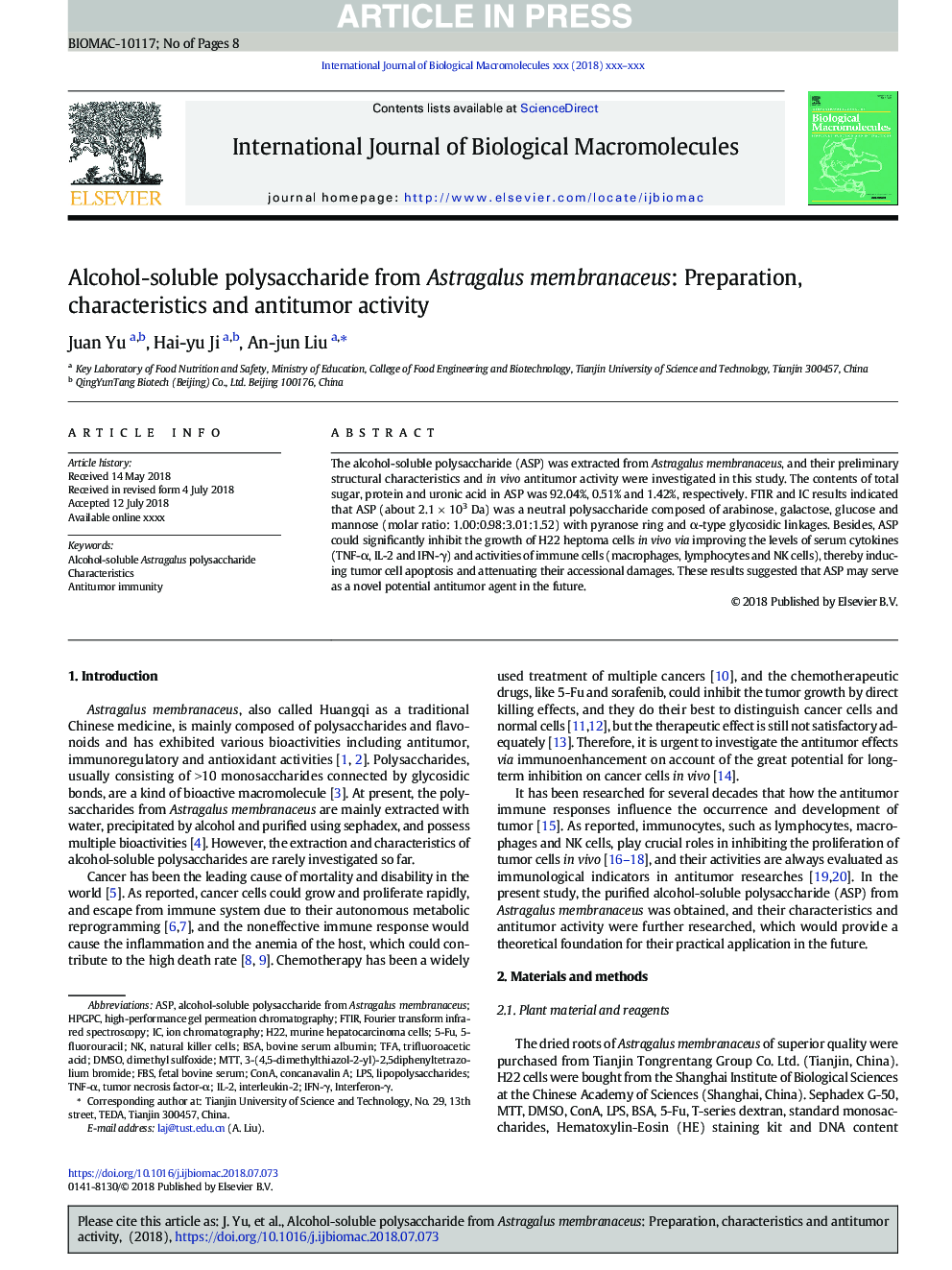| Article ID | Journal | Published Year | Pages | File Type |
|---|---|---|---|---|
| 10156902 | International Journal of Biological Macromolecules | 2018 | 8 Pages |
Abstract
The alcohol-soluble polysaccharide (ASP) was extracted from Astragalus membranaceus, and their preliminary structural characteristics and in vivo antitumor activity were investigated in this study. The contents of total sugar, protein and uronic acid in ASP was 92.04%, 0.51% and 1.42%, respectively. FTIR and IC results indicated that ASP (about 2.1â¯Ãâ¯103â¯Da) was a neutral polysaccharide composed of arabinose, galactose, glucose and mannose (molar ratio: 1.00:0.98:3.01:1.52) with pyranose ring and α-type glycosidic linkages. Besides, ASP could significantly inhibit the growth of H22 heptoma cells in vivo via improving the levels of serum cytokines (TNF-α, IL-2 and IFN-γ) and activities of immune cells (macrophages, lymphocytes and NK cells), thereby inducing tumor cell apoptosis and attenuating their accessional damages. These results suggested that ASP may serve as a novel potential antitumor agent in the future.
Keywords
5-FUIL-2IFN-γTFAASPConAHPGPCConcanavalin AH22FBSLPSBSADMSOMTTbovine serum albuminTrifluoroacetic acidAntitumor immunityinterferon-γInterleukin-2tumor necrosis factor-αDimethyl sulfoxidefetal bovine serumNatural killer cellsFTIRFourier transform infrared spectroscopyTNF-α5-fluorouracilLipopolysaccharidesCharacteristicshigh-performance gel permeation chromatographyIon chromatography
Related Topics
Life Sciences
Biochemistry, Genetics and Molecular Biology
Biochemistry
Authors
Juan Yu, Hai-yu Ji, An-jun Liu,
